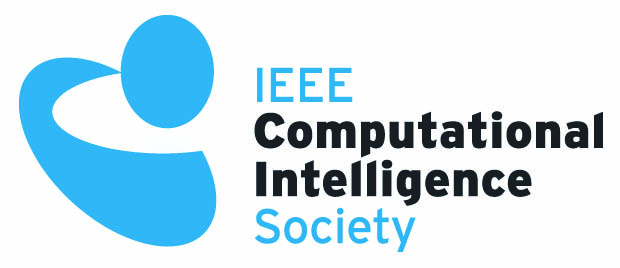
Pr. BJOERN SCHULLER
Faculty of Engineering, Department of Computing
Imperial College London, South Kensington Campus, London, UK
PProfessor of Artificial Intelligence
Title : "Human-centric Intelligent Computing : Challenge Accepted"
Björn W. Schuller received his diploma, doctoral degree, habilitation, and Adjunct Teaching Professor in Machine Intelligence and Signal Processing all in EE/IT from TUM in Munich/Germany. He is Full Professor of Artificial Intelligence and the Head of GLAM at Imperial College London/UK, Full Professor and Chair of Embedded Intelligence for Health Care and Wellbeing at the University of Augsburg/Germany, co-founding CEO and current CSO of audEERING – an Audio Intelligence company based near Munich and in Berlin/Germany, and permanent Visiting Professor at HIT/China amongst other Professorships and Affiliations. Previous stays include Full Professor at the University of Passau/Germany, and Researcher at Joanneum Research in Graz/Austria, and the CNRS-LIMSI in Orsay/France. He is a Fellow of the IEEE and Golden Core Awardee of the IEEE Computer Society, Fellow of the ISCA, President-Emeritus of the AAAC, and Senior Member of the ACM. He (co-)authored 900+ publications (30k citations, h-index=80), is Field Chief Editor of Frontiers in Digital Health and was Editor in Chief of the IEEE Transactions on Affective Computing amongst manifold further commitments and service to the community. His 30+ awards include having been honoured as one of 40 extraordinary scientists under the age of 40 by the WEF in 2015. He served as Coordinator/PI in 15+ European Projects, is an ERC Starting Grantee, and consultant of companies such as Barclays, GN, Huawei, or Samsung.

Pr. CESARE ALIPPI
Politecnico di Milano, Italy
Universita' della Svizzera italiana
Title : "Soon..."
Many fields, like physics, neuroscience, chemistry, and sociology, investigate phenomena by processing multivariate measurementsadvantageously represented as a sequence of attributed graphs. Graphs come in different forms, with variable attributes, topology, and ordering, making it difficult to perform a mathematical analysis in the graph space. Within this framework, we are interested in processing graph datastreams to solve applications e.g., detect structural changes in the graphsequence, a situation associated with time variance, faults, anomalies or events of interestas well as design sophisticated processing like those requested by predictors. On the change detection front, theoretic results show that, under mild hypotheses, the confidence level of an event detected in the graph domain can be associated with another confidence level inan embedding space; this enables the identification of events in the graph domain by investigating embedded data. The opposite holds. However, evaluation of distances between graphs and identification of an appropriate embedding for the problem at hand are far from being trivial tasks with deep adversarial learning approaches and constant curvature manifold transformation showing to be appropriate transformations able to solve the problem. Deep autoregressive predictive models can then be designed to operate directly on graphs, hence providing the building blocks for other future sophisticated neural processing.
Biography:
CESARE ALIPPI received the degree in electronic engineering cum laude in 1990 and the PhD in 1995 from Politecnico di Milano, Italy. Currently, he is a Professor with the Politecnico di Milano, Milano, Italy and Università della Svizzera italiana, Lugano, Switzerland. He is a visiting professor at the University of Kobe, Japan, the University of Guangzhou, China and Consultant Professor at the Northwestern Polytechnic in Xi’An, China. He has been a visiting researcher at UCL (UK), MIT (USA), ESPCI (F), CASIA (RC), A*STAR (SIN). Alippi is an IEEE Fellow, Member of the Administrative Committee of the IEEE Computational Intelligence Society, Board of Governors member of the International Neural Network Society, Board of Directors member of the European Neural Network Society, Past Vice-President education of the IEEE Computational Intelligence Society , past associate editor of the IEEE Transactions on Emerging topics in computational intelligence, the IEEE Computational Intelligence Magazine, the IEEE-Transactions on Instrumentation and Measurements , the IEEE-Transactions on Neural Networks. In 2018 he received IEEE CIS Outstanding Computational Intelligence Magazine Award , the 2016 Gabor award from the International Neural Networks Society and the IEEE Computational Intelligence Society Outstanding Transactions on Neural Networks and Learning Systems Paper Award ; in 2013 the IBM Faculty award ; in 2004 the IEEE Instrumentation and Measurement Society Young Engineer Award. Current research activity addresses adaptation and learning in non-stationary environments, graph learning and Intelligence for embedded, IoT and cyber-physical systems . He holds 8 patents, has published one monograph book, 7 edited books and about 200 papers in international journals and conference proceedings.

Modar Alaoui
Founder and CEO at Eyeris, Palo Alto, California, USA
Title : "Applied Vision AI Inside Autonomous Vehicles: A Deep Dive On In-cabin Sensing Enabled With AI Chips"
Modar is a Silicon Valley artificial intelligence (AI) technology entrepreneur and a leading figure in computer vision AI for human behavior understanding, modeling and prediction. He is currently the founder and CEO of Eyeris, a leader of in-vehicle scene understanding AI inside autonomous and Highly-Automated Vehicles (HAVs). Modar also serves as an advisor to the the Khronos Group’s Neural Network Exchange Format (NNEF). Modar combines over a decade of experience in computer vision and applied human-centric AI for a wide range of enterprise applications. His work focuses on bridging human-machine interaction with predictive invisible interfaces through body, face, object and surface analysis. He is a frequent speaker, keynoter and author on “human-centric ambient intelligence” as the next frontier in AI. Modar graduated from Concordia University Montréal, with a concentration on Human Behavior Understanding (HBU) using artificial intelligence technologies. He is a winner of several international technology and innovation awards and has been featured on Bloomberg, the Wall Street Journal, Wired magazine, Time magazine, CNBC, Reuters, Fast Company and many major media publications spanning over 12 different languages for his work.



